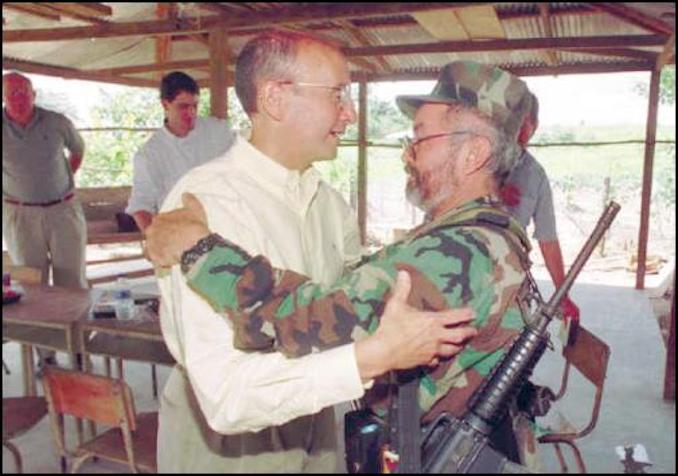
As First Published in the July, 1999 issue
From The Wilderness Publications
When I was on Wall Street, we used to think the investment bankers who made new business visits—“cold calls”—in Alaska were pretty adventuresome. We called these trips “Tundra patrol.” Clearly, I was naive about what constituted exotic investment banking adventure. The Chairman of the New York Stock Exchange, Richard Grasso, has underscored for me how much times have changed.
In late June, numerous news services reported that Chairman Grasso and members of his executive staff flew to Colombia to meet with a spokesperson for Raul Reyes of the Revolutionary Armed Forces of Columbia (FARC), the country’s largest leftist rebel group. The purpose of the trip was “to bring a “message of cooperation from U.S. financial services” and to discuss foreign investment and the future role of U.S. businesses in Colombia.
It does not take much reading in between the lines to conclude that Grasso’s mission somehow relates to the continued circulation of cocaine capital into and through the US financial system. Perhaps it would not be so wonderful if the Colombian rebels started circulating their profits back into local development without the assistance of the American depository and investment system. Worse yet, it would not be so wonderful for organized crime profit margins or the War on Drugs if the FARC’s increasing military and political effectiveness were to, as FARC proposes, remove illegal profits by controlling the decriminalization of cocaine. It was only a few days after Grasso’s trip that BBC News reported a GAO report to Congress as saying: “Colombia’s cocaine and heroin production is set to rise by as much as 50% as the U.S. backed drug war flounders, due largely to the growing strength of Marxist rebels”
We can deduce from this incident that the liquidity of the NY Stock Exchange is sufficiently dependent on high margin cocaine profits that the Chairman is willing for Associated Press to acknowledge that he is making “cold calls” in rebel controlled peace zones in Colombian villages. That means that the myth upon which American global hegemony and liquid capital markets depend —- the myth of the rule of law —- is fraying.
Drug capital provides low cost capital, but not as much as the liquidity generated by the belief that in America, the government’s word and our contracts are reliable and enforced by the rule of law. Grasso’s trip underscores the fact that if we do not flip our model soon, we are headed into a tipping point when the unhealthy drives out enough of the healthy to implode the entire financial system.
Chairman Grasso’s trip says to me that organized crime dollars have replaced petrodollars as the American financial system’s number one circulatory disease and our addiction to drug profits is increasing our risk of a financial heart attack.
